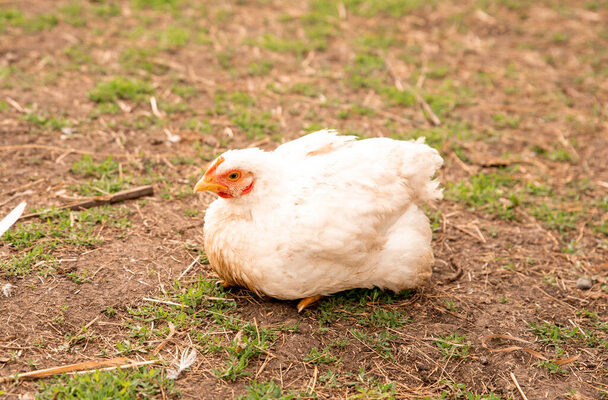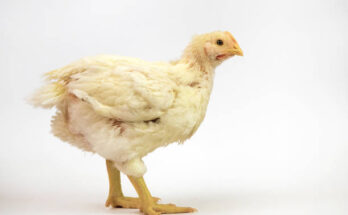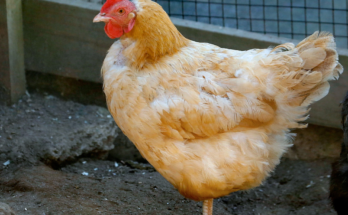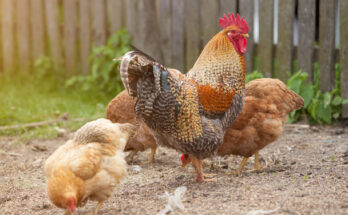The Ultimate Guide to Composting Chicken Manure for Nutrient-Rich Soil
Composting chicken manure is a sustainable and cost-effective way to create nutrient-rich soil for your garden. Whether you’re a seasoned gardener or just starting out, learning how to compost chicken manure can significantly improve your garden’s soil quality and overall plant health.
In this blog post, we will walk you through the step-by-step process of composting chicken manure, covering everything from why it’s beneficial to the best practices for composting this organic material. By the end of this article, you’ll have a comprehensive understanding of how to effectively utilize chicken manure in your composting efforts and enrich your garden’s soil.
Not only will composting chicken manure help reduce waste and minimize environmental impact, but it also provides an excellent source of valuable nutrients for your plants. Whether you’re aiming for a bountiful harvest or simply want to promote a thriving garden ecosystem, incorporating composted chicken manure can be a game-changer for your gardening endeavors.
Understanding Chicken Manure
Chicken manure is a rich source of nutrients that can significantly benefit your compost pile. Composed of nitrogen, phosphorus, potassium, and other essential minerals, it provides a balanced blend of nutrients that can enhance the quality of your compost.
Nutrient Content
Chicken manure contains high levels of nitrogen, which is a crucial component for plant growth and development. Additionally, it also includes significant amounts of phosphorus and potassium, which are vital for root development and overall plant health. These essential nutrients make chicken manure a valuable resource for enriching your compost with the elements necessary for robust plant growth.
Benefits of Composting Chicken Manure
Composting chicken manure is a highly effective way to transform this organic waste into a valuable fertilizer. Through the composting process, the high nitrogen content of the chicken manure gets balanced with other organic materials, allowing for a slower release of nutrients into the soil. This gradual release reduces the risk of nutrient imbalances and potential harm to plants, providing a steady and sustainable source of nourishment for your garden.
In addition, composting also helps to break down any potential pathogens present in fresh chicken manure, making it safer to use as a fertilizer. This transformation process not only makes the manure safer but also enhances its overall effectiveness as a nutrient-rich soil amendment.
With the ability to create a nutrient-rich, balanced, and safe fertilizer, composting chicken manure is a sustainable and environmentally friendly way to boost the health and productivity of your garden.
Composting Chicken Manure: Getting Started
Starting the process of composting chicken manure is an effective way to manage waste and create nutrient-rich fertilizer for your garden. Here’s how to get started.
Selecting a Composting Method
When it comes to composting chicken manure, you have several options to choose from. Traditional compost piles or bins can work well and are relatively low maintenance. If you prefer a more contained method, consider using a compost tumbler or even a vermicomposting system with worms.
Preparing the Chicken Manure for Composting
Before adding chicken manure to your composting system, it’s crucial to let it age and dry out for a period of time. Fresh manure is too high in nitrogen and can be too “hot” for plants if not properly aged. Spread the manure in a thin layer and let it sit for a few months, turning it occasionally to ensure even drying and aging.
Balancing the Carbon-Nitrogen Ratio
Maintaining the right balance of carbon and nitrogen is key to successful composting. Chicken manure is high in nitrogen, so it’s essential to mix it with a carbon-rich material such as straw, leaves, or sawdust. This helps prevent the formation of ammonia gas and ensures the composting process runs smoothly.
Achieving the correct carbon-nitrogen ratio (C:N) of around 25-30 parts carbon to 1 part nitrogen is crucial for efficient decomposition and odor control. An imbalanced C:N ratio can result in a slow or incomplete breakdown of materials, as well as unpleasant odors.
By paying attention to the composting method, preparing the chicken manure appropriately, and maintaining the carbon-nitrogen balance, you can set the stage for effective composting of chicken manure while reaping the benefits of nutrient-rich fertilizer for your garden.
Composting Process
Composting chicken manure is a simple yet effective process that yields nutrient-rich organic fertilizer for your garden. The key to successful composting lies in understanding the process and implementing it effectively to ensure an optimal outcome.
Layering and Turning the Compost Pile
When composting chicken manure, it’s important to create layers within the compost pile. Start by laying down a base layer of organic materials such as straw, leaves, or sawdust. Add a layer of chicken manure on top of the base layer, followed by another layer of organic materials. This layering process helps to balance the carbon-to-nitrogen ratio and promotes the decomposition of the materials.
Regular turning of the compost pile is crucial to ensure proper aeration and facilitate the decomposition process. Use a pitchfork or a compost turning tool to mix the layers thoroughly. This helps in distributing moisture and oxygen evenly, encouraging the growth of beneficial microorganisms and speeding up the decomposition process.
Managing Moisture and Aeration
Maintaining the ideal moisture level is essential for the successful composting of chicken manure. The compost pile should be damp, like a wrung-out sponge, to support the activities of microorganisms. Regularly check the moisture level and add water as needed to ensure the compost pile remains consistently moist.
Ensuring proper aeration within the compost pile is vital to prevent the formation of anaerobic conditions, which can lead to unpleasant odors. Turn the compost pile regularly to introduce oxygen and promote aerobic decomposition. Consider using a compost aerator or turning tool to facilitate the aeration process and maintain optimal conditions for decomposition.
Monitoring Temperature
Monitoring the temperature of the compost pile is crucial for assessing the progress of the decomposition process. A properly functioning compost pile will naturally heat up as the microorganisms break down the organic materials. Use a compost thermometer to monitor the internal temperature of the pile. The ideal temperature range for composting chicken manure is between 130°F and 150°F. If the temperature exceeds 160°F, the compost pile may become too hot and harm the beneficial microorganisms. In contrast, temperatures below 90°F may indicate a lack of microbial activity, requiring adjustments to the compost pile’s composition or aeration.
Implementing these essential practices will facilitate the effective composting of chicken manure, resulting in a valuable organic fertilizer that can enhance the health and vitality of your garden.
Using Composted Chicken Manure
When it comes to utilizing composted chicken manure, there are a few essential guidelines, as well as best practices for storage and shelf life that should be taken into account to ensure optimal results.
Application Guidelines
- Quantity: Apply composted chicken manure to the soil at a rate of 40 to 80 pounds per 100 square feet of garden or bed area.
- Incorporation: Mix the composted manure into the soil to a depth of 6 to 8 inches to allow for proper integration and nutrient absorption by the plants.
- Timing: It is advisable to apply composted chicken manure in the fall after the harvest, or in the spring before planting, to allow sufficient time for decomposition and nutrient release.
Storage and Shelf Life
Storing composted chicken manure properly is crucial to maintain its effectiveness. Here are some best practices:
- Avoid Moisture: Store the composted manure in a dry area to prevent moisture accumulation, as excess moisture can lead to a loss of nutrients and unpleasant odors.
- Aeration: Ensure proper aeration by turning the compost regularly to prevent it from becoming compacted, which can hinder its quality.
- Shield from Sunlight: Keep the composted chicken manure out of direct sunlight, as this can cause a loss of nutrients and microorganisms.
By adhering to these guidelines and best practices, you can maximize the benefits of composted chicken manure while ensuring its longevity and effectiveness in enhancing soil quality and supporting plant growth.
Safety Considerations
When it comes to composting chicken manure, safety should always be a top priority. Proper handling and composting of chicken manure is crucial in order to eliminate any potential health risks associated with handling raw manure.
Pathogen Elimination
One of the most critical aspects of composting chicken manure is the elimination of pathogens. Improperly composted manure can contain harmful pathogens such as E. coli and Salmonella, which can pose serious health risks to humans and animals. Through the composting process, the heat generated can effectively eliminate these pathogens, making the manure safe for use as a fertilizer.
Protective Gear
When handling chicken manure, it is essential to use protective gear to minimize the risk of exposure to pathogens and other potential hazards. This can include wearing gloves, masks, and eye protection. Additionally, it is important to wash hands thoroughly after handling the manure to prevent any potential contamination.
By understanding and adhering to these safety considerations, you can ensure that the composting process is not only effective in eliminating pathogens but also safe for your own well-being.
Conclusion
In conclusion, composting chicken manure is a sustainable and environmentally friendly way to enrich your garden soil. By following the steps outlined in this guide, you can effectively turn chicken manure into a valuable organic fertilizer while minimizing the risk of harmful pathogens and odors. By harnessing the nutrient-rich properties of chicken manure through composting, you can contribute to a healthier ecosystem and promote the growth of vibrant, thriving plants in your garden. Embracing this natural fertilizer alternative not only benefits your garden but also reduces waste and supports a more sustainable approach to agriculture. Happy composting!



